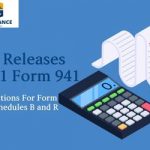RECORDED TRAINING COURSE
Complying with the tax code, tax withholding requirements and deposit schedules for the IRS and one state is complicated enough. But for the multistate employer, multiply this by 5, 10, 20, or even 50 and it can turn into a payroll department’s nightmare. Add a lingering pandemic to this mix and you can have the makings of a horror movie! Not only are there more rules and regulations to comply with, but the penalties can multiply if mistakes are made.
All payroll professionals must know the taxation and reporting requirements for all states where the company has employees working or in the case of reciprocal agreements, living. But for the payroll department that must handle employees who work in multiple states simultaneously or who travel to different states at different times for the employer the taxing and reporting requirements can become an arduous task at best and at worse a fiasco.
Employees working from home can add even more to the complexity! Questions must be answered, sometimes on an employee by an employee or even tougher on a case-by-case basis for an individual employee. Which state income tax is withheld? Does it matter if the employee is a resident or a nonresident of the state?
Are there any reciprocal agreements in effect that must be taken into consideration? Which state do we pay the SUI to and what happens if one of the states has disability insurance but the other doesn’t? Or worse yet what if both states require disability insurance to be deducted?
Some employers may even think they have solved this logistics and regulations nightmare by simply withholding the income and paying the SUI over to the state where the employee lives. And this might appear to be good in theory but in actual practice, it is an audit disaster waiting to happen, and happen it will.
Only if the employee is performing some work in the state in which they live would the employer have a hope of passing the audit for paying the SUI. But when it comes to state income tax audits it won’t even come close. Most states require state income tax withholding for wages paid for work performed in the state.
The only ground given in this area is usually for reciprocal agreements and nonresident employees who may be in the state for a limited time. No, the only way to determine the proper taxation for multiple state employees is by researching and applying the requirements for each state. And this is where this webinar will help. This webinar will cover the intricacies and requirements that must be addressed by the multistate employer.
Also, an employer with employees working in multiple states does not just have taxes to deal with. Now there are also wage and hour laws to contend with! In a different (read: higher) minimum wage? Are the overtime rules different? Would that employee still be exempt?
SESSION HIGHLIGHTS:
- How to determine state withholding liability
- Who is a resident
- How reciprocal agreements affect the taxation of wages
- Resident and nonresident taxation policies
- The four-factor test for state unemployment insurance
- Income and unemployment taxation of Fringe benefits
- What wage and hour laws must be followed
- How to handle income and unemployment insurance taxation for employees working in multiple states
- How working in multiple states could affect withholding for garnishments
- Withholding requirements when an employee is in a state temporarily
- Which states require the use of their own Withholding Allowance Certificate, which states allow either theirs or the Form W-4, and which states do not have a form
- Reporting wages for multistate employees on Form W-2
- How COVID-19 affects teleworkers who are in a different state
Why You Should Attend:
This webinar discusses the handling of state taxes, wage and hour law, and garnishments when an employee lives in one state and works in another or works in two or more states simultaneously. Includes determining liability as an employer, reciprocal agreements, resident and nonresident taxation, Form W-4 equivalents, state unemployment insurance, wage and hour law requirements, and garnishment withholding including the effects of COVID-19 on these areas!
Who Should Attend:
- Payroll Professionals
- Accounting Professionals
- Tax Professionals
- Finance Professionals
- Compensation Professionals
- Benefits Professionals
- Senior HR Professionals,
- HR Managers & Directors,
- HR Personnel,
- CEOs
- Managers
- Team Leaders
Note: You will get access to the Recording link and E-Transcript; in your account and at your registered email address.









